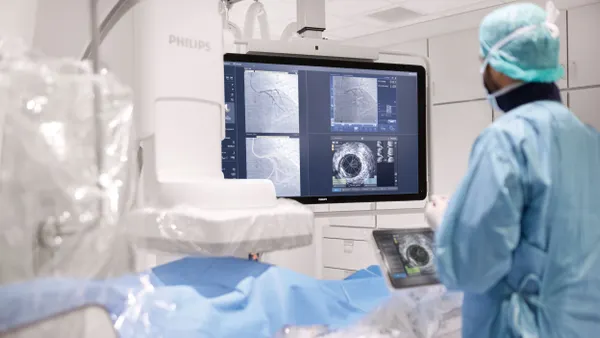Dive Brief:
- The U.K’s medical device regulator on Friday said it is continuing to collect and "proactively" monitor reports and research from around the globe on health problems stemming from breast implants but currently does not know if there is a link between the devices and reported illnesses.
- The Medicines and Healthcare products Regulatory Agency said people with breast implants have reported anxiety, fatigue, joint pain, brain fog and autoimmune disorders they believe are related to their implants. Those reports have come from patients whose implants have different textured surfaces, fillings and manufacturers. The guidance said "there is no single disease which could explain the symptoms some people are reporting to us or to their clinicians."
- "We take a scientific evidence-based approach and if the conclusions reached about breast implants change in the light of this continuing evaluation, we will communicate further advice to patients and healthcare professionals," MHRA wrote.
Dive Insight:
In contrast to the actions of a number of worldwide regulators, MHRA appears to be taking a more measured approach to assessing breast implant safety in light of continued concerns raised by women who believe they are suffering from symptoms related to their implants.
The guidance noted that a 1998 regulator-sanctioned report by an independent review group found no evidence of a scientific relationship between silicone gel implants and long-term, whole body illnesses, nor a link to any specific connective tissue disease.
But MHRA said in its guidance that continued research and assessment are important. "Whilst there remains no definitive evidence or known scientific process demonstrating that breast implants cause these symptoms, we continue to look at research with our independent clinical experts to see if any new evidence comes to light which would increase our understanding of this issue."
The U.K. regulator said there is no single disease that can explain the symptoms being reported. It encouraged the public and healthcare professionals to report issues with breast implants to the agency. It also said implanting surgeons should tell anyone considering a procedure about the known as well as unknown risks, including warning patients that "some people have experienced a variety of symptoms which they associate with their breast implants."
The agency said it would update its advice, including on its website page, if any new evidence indicates a link between implants and the symptoms being reported.
The guidance comes six months after U.S. regulators reported 573 cases globally of breast implant associated anaplastic large cell lymphoma, or BIA-ALCL, and 33 patient deaths, prompting manufacturer Allergan to conduct a global recall of its Biocell textured breast implants. Of the total cases, 481 were attributed to the Allergan implant.
After convening a two-day advisory panel meeting in March to assess the latest evidence on breast implant safety, FDA sought the Allergan recall and in October proposed adding a black box warning to breast implants and a patient decision checklist. Before the Allergan recall was initiated, Canada, France, the Netherlands, Saudi Arabia and Australia were among the countries moving to restrict textured implants.
MHRA estimated based on reported confirmed cases of the cancer that it occurs in one per every 24,000 implants sold in the U.K.











